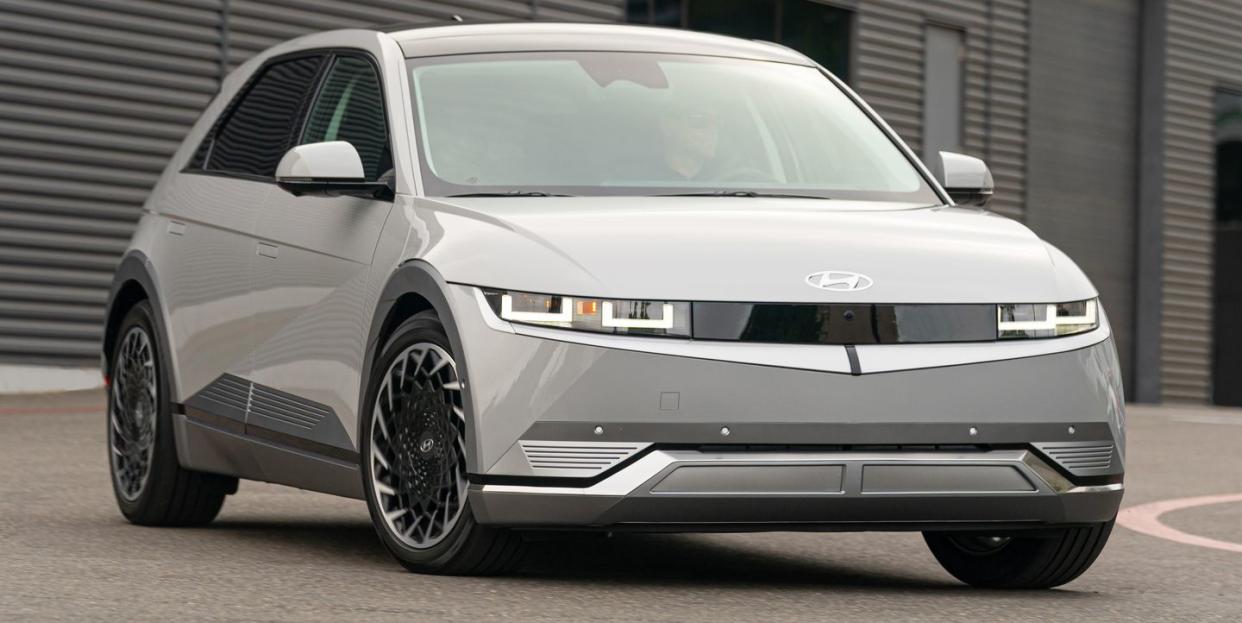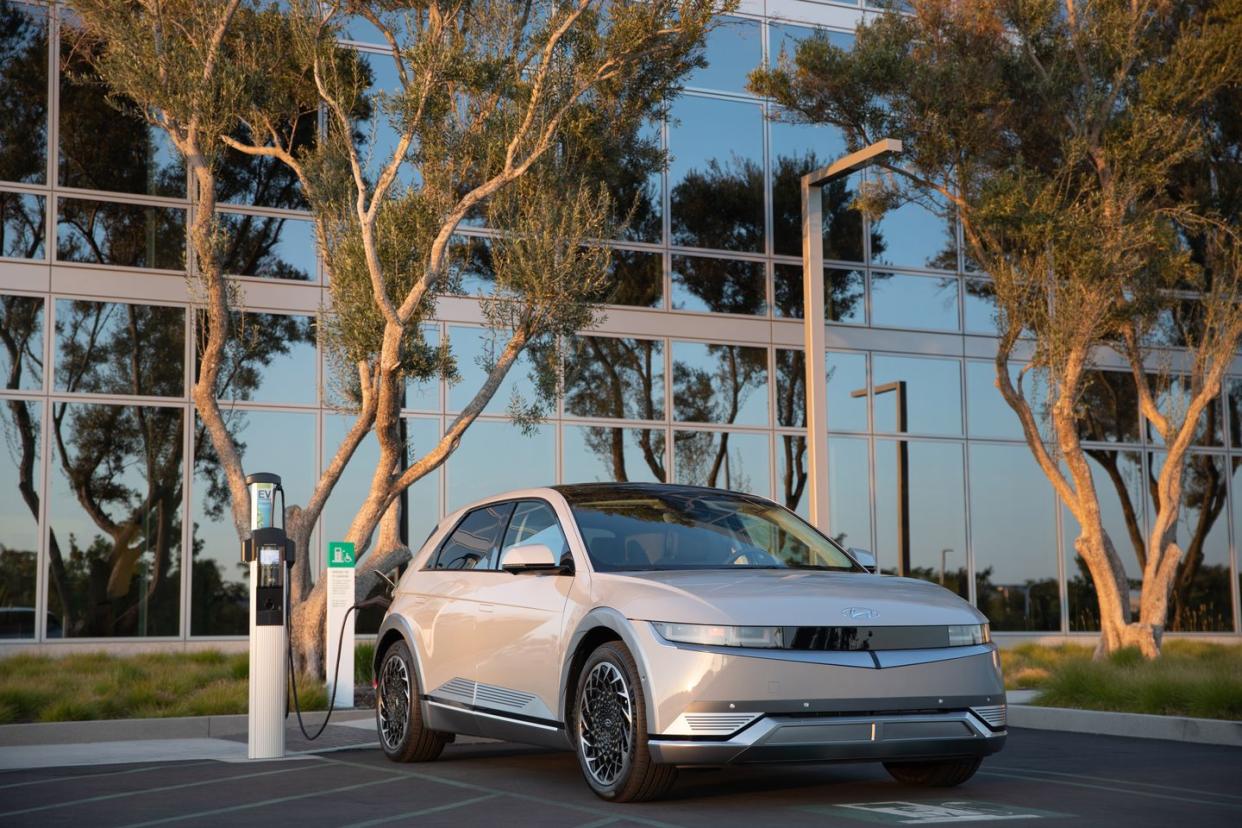2022 Hyundai Ioniq 5, Kia EV6 in NHTSA Investigation over Power Loss

The Hyundai Ioniq 5 crossover is the subject of a new safety probe by the National Highway Traffic Safety Administration (NHTSA).
The investigation comes as a result of 30 customer complaints alleging a loss of power while driving the Ioniq.
According to Hyundai and the Office of Defects Investigation, the issue stems from the Integrated Control Charging Unit (ICCU).
UPDATE 7/10/2023: NHTSA has opened an investigation into the 2022 Kia EV6, which joins the Hyundai Ioniq 5 under a probe of loss of power during driving. Both EVs have been the subject of owner complaints that power is reduced or lost completely while the vehicle is being driven. A NHTSA summary filed on July 3 says that there have been 11 complaints about the Kia, stating, "Many consumers report a loud pop noise followed by a warning displayed in their dashboard and immediately experience a loss of motive power," which in some cases is reduced and in others total loss of power. The problem is estimated to affect 19,824 2022 Kia EV6 EVs. As with the Ioniq 5, this is still an investigation and has not yet triggered a recall of the vehicles.
Hyundai's celebrated and popular Ioniq 5 electric crossover is the subject of an open investigation by NHTSA's Office of Defects Investigation (ODI). The investigation stems from 30 customer complaints alleging their Ioniq 5 lost power while they were driving it. As things stand now, the investigation only affects 2022 model year Ioniq 5s.
According to NHTSA, many of the customer complaints refer to a loud popping noise in the car, followed by a warning displayed in their dashboard and an immediate loss of power that ranges from a reduction to a complete loss of motive power. The ODI conducted a series of owner interviews confirming loss of power and varying time intervals between the warning message and loss of power.

According to documents from NHTSA, Hyundai has said the failure is related to the Integrated Charging Control Unit (ICCU), which is responsible for powering both the main vehicle battery and the low voltage 12V accessory battery. Hyundai's preliminary assessment leads it to believe that the problem stems from an over-current within the ICCU that can damage transistors in the 12V battery system, hampering its ability to recharge.
"We value our cooperative relationship with NHTSA and have engaged in frequent, open, and transparent dialogue with the agency on this topic," Hyundai said in a statement. The company is planning to begin a service campaign in July, updating software as necessary and replacing ICCUs if that is needed.
The investigation is ongoing, and it is unclear right now if NHTSA will decide to transition into a full-scale recall. It's important to note that while an ODI investigation may lead to a recall, NHTSA considers investigations and recalls to be separate. Owners concerned their vehicle may be under recall can check out the NHTSA recalls website for more information.

You Might Also Like
